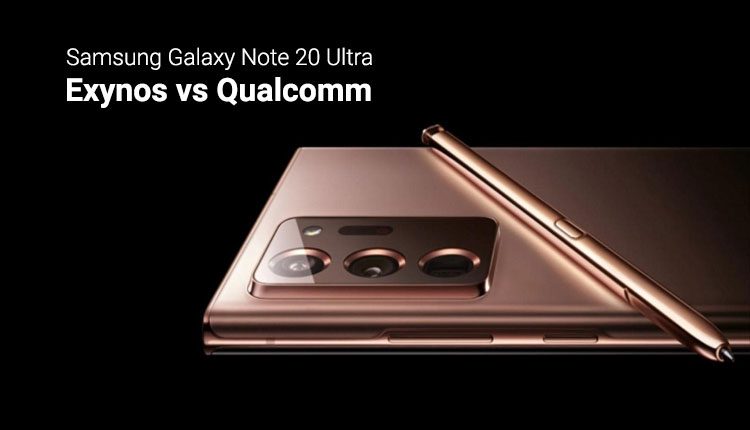Every year Samsung announces Flagship smartphones under Two major line up. At the beginning of the year, we see there Galaxy ‘S’ series of devices, and while at the mid we get to see Note series of devices from Samsung. For a consumer, a flagship smartphone comes with a Flagship experience and a hefty price tag.
As we all know, the heart of a smartphone lies in its SoC or as we call it System on a Chip. In the last few years, Samsung has been using two different flagship SoC for its smartphones. The one comes with their own Exynos Chipset and the other one comes with Snapdragon Chipset from Qualcomm. And that’s, where the debate between Exynos & Qualcomm has been started.
Snapdragon SoCs from Qualcomm is considered better than their Exynos counterpart. Samsung is selling its Snapdragon variant Flagships in markets like the US, China, and their home town S.Korea. While the rest of the world is getting the inferior Exynos variant flagship even after paying the same amount of money even more in some cases.
This issue mainly caught the fire after significant differences between Samsung Galaxy S20 Ultra Snapdragon Variant and Exynos variant. Between both the devices we saw differences in performance, battery life, and even Camera. As you may ask hows that possible. It is because Smartphones are built around SoC. Unlike PCs, in a Smartphone, components like CPU, GPU, ISP (Image Signal Processor), Modem, and many more things are soldered into one. That’s why it’s called a System on a Chip.
This video might help you see the difference between Samsung Galaxy S20 Ultra Snapdragon Variant and Exynos variant:
Samsung Galaxy Note 20 Ultra: Snapdragon vs Exynos
Samsung recently launched its Galaxy Note 20 series for the year 2020. Here too we got two different SoC variants of the device. In the market like the US, Canada we got the Snapdragon 865+ SoC whereas the rest of the world was treated with Exynos 990. People started to raise their fingers because earlier this year Samsung used the same Exynos 990 in their Galaxy S20 devices while using the Snapdragon 865 in the US. Even at that time, the Exynos variant of the device was considered inferior while comparing both of the devices.
Samsung stated that they have optimized the Exynos 990 to work better with their Note devices. But even after looking at the benchmarking scores and comparisons of both the devices, they look like a generation apart. While comparing both the devices on the Speed Test G benchmark, we can see the differences in CPU and GPU performance of Snapdragon 865+ and Exynos 990.

Watch the full speed test video here:
Why Samsung does this?
So here are the few reasons why Samsung uses two different SoC in their flagship devices. These are the few main reasons, stated in a simple way to make you understand easily.
-
Samsung is the one who makes the Exynos SoC and using their own products helps them a lot while cost-cutting rather than using Snapdragon SoC and giving them a share of there profit.
-
On the other hand, using Exynos SoC gives Samsung flexibility, like if Samsung wants to sell a 4G variant of their flagship in the countries where 5G barely exists they can do that easily as they have the control with the Exynos SoC. Unlike Qualcomm who sells their SoC with a mandatory 5G modem. Which is a lot expensive and doesn’t make sense for the markets were 5G is yet to come.
-
Then the question arises why don’t they use Exynos SoC all around the world? Samsung can’t do that easily yet. Smartphone signals mainly use two different types of Radiofrequency. In a country like the US and a few others, we see CDMA while mostly the rest of the world uses GSM. SoC from Qualcomm is always made keeping CDMA in mind, which means they work better in countries with CDMA technology. Samsung can’t easily embed the CDMA tech in their SoCs because of the patient issue. Qualcomm has a lot of patents filed under there name, which will prevent Samsung from using CDMA.
So what are your thoughts about all this Exynos and Snapdragon drama that we get to see every time Samsung announces a new flagship? Let us know your thoughts in the comment section below.







